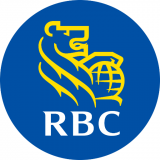Locking in the right mortgage rate can require some research. With due diligence, BestMortgageRates4u.ca will help you to find just the right mortgage rate that will suit all your home-buying needs
Royal Bank of Canada
| Term | Rate | APR |
|---|---|---|
| 2 Year Fixed | 3.48% | 3.54% |
| 5 Year Fixed | 3.24% | 3.27% |
| 5 Year Variable | Prime Rate – 3.35% | 3.38% |
TD Canada Trust
| Term | Rate | APR |
|---|---|---|
| 3 Year Fixed | 3.09% | 3.12% |
| 5 Year Fixed | 3.07% | 3.09% |
| 5 Year Variable | Prime Rate – 3.350% | 3.37% |
Bank of Montreal
| Term | Rate | APR |
|---|---|---|
| 3 Year Fixed | 3.09% | 3.12% |
| 5 Year Fixed | 3.04% | 3.06% |
| 5 Year Fixed | Smart – 2.87% | 2.89% |
Scotiabank
| Term | Rate | APR |
|---|---|---|
| 2 Year Fixed | 3.74% | – |
| 5 Year Fixed | 5.19% | – |
| 5 Year Variable | Open Rate – 4.15% | 4.18% |
Tangerine
| Term | Rate | APR |
|---|---|---|
| 2 Year Fixed | 2.74% | – |
| 5 Year Fixed | 2.89% | – |
| 5 Year Variable | Closed Rate – 3.25% | – |
Frequently Asked Questions
What is Mortgage?
- Mortgages are loans you take out to buy real estate or turn your home equity into cash. Once approved, you repay the loan according to specific terms that include interest rate, payment amount and timeline. These details are set out in the mortgage document. Your lender registers a charge on your property. If you can’t repay the mortgage, your lender can take possession of your property and sell it to collect any money you owe them.
Should I Choose A Fixed Or Variable Rate Mortgage?
When looking for your dream home, you will have to decide if you want a fixed or variable mortgage.
- A fixed mortgage rate allows you to “lock-in” for a term (set time period) at a predetermined rate. Although you can get one that can last anywhere from 6 months to 25 years, the most popular term is 5 years.
- A variable mortgage rate is based on the prime rate of the mortgage lender. The prime rate is determined by the current economic conditions. It is the standard benchmark interest rate that is used by the big banks when pricing for short term loans. A variable mortgage rate can increase or decrease depending on if the prime rate increases or decreases.
What Is The Difference Between A Mortgage Term And An Amortization Period?
- The Amortization period refers to your mortgage’s entire length, whether it is a short-term or long-term mortgage. Many mortgages will be negotiated over a period of 25 years. Throughout those 25 years, there will be a number of terms and conditions that will be negotiated. The most common length of a mortgage term is five years, which means you pay the principal and interest for five years at a negotiated rate, and negotiate another five-year term after that.
What is Prime Rate?
- This is also referred to as Canada’s benchmark prime rate. When the Bank of Canada changes its overnight rate, then Banks will alter its benchmark prime rate based on that.





